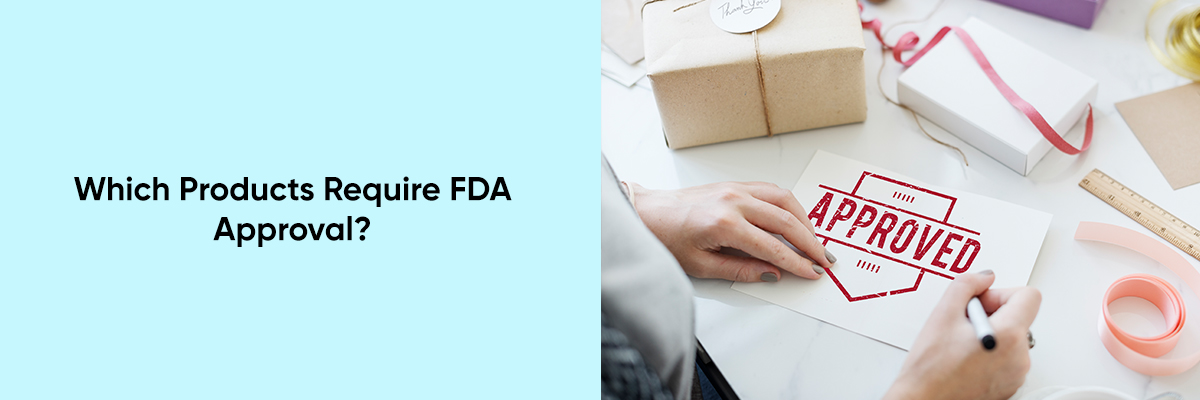The Food and Drug Administration (FDA) plays a crucial role in protecting public health by ensuring the safety, efficacy, and security of various products in the United States. The agency’s jurisdiction spans a wide range of products, but not all of them require FDA approval before reaching the market.
Understanding which products need FDA approval is essential for both manufacturers and consumers to ensure compliance and safety.



1. Drugs and Biologics
- Prescription Drugs: All prescription drugs must undergo rigorous testing and approval by the FDA before they can be marketed to the public. This process involves several phases of clinical trials to ensure that the drug is safe and effective for its intended use.
- Over-the-Counter (OTC) Drugs: Unlike prescription drugs, many OTC drugs do not require individual FDA approval if they conform to established standards, known as “monographs.” However, any new active ingredient or novel use of an existing ingredient must be reviewed and approved by the FDA.
- Biologics: Biologics, which include vaccines, blood products, gene therapies, and other products derived from living organisms, also require FDA approval.
2. Medical Devices
- Class III Devices: High-risk medical devices, such as pacemakers, heart valves, and implantable defibrillators, require FDA approval through a process known as Pre-market Approval (PMA). These devices are subject to the most stringent regulatory controls.
- Class II Devices: Moderate-risk devices, such as pregnancy tests and powered wheelchairs, may require FDA clearance through a 510(k) process, demonstrating that they are substantially equivalent to an existing legally marketed device.
- Class I Devices: Low-risk devices, like bandages and tongue depressors, generally do not require FDA approval but must adhere to general controls, including proper labeling and manufacturing practices.
3. Food and Dietary Supplements
- Food Additives: Any new food additive or substance intended for human consumption that is not generally recognized as safe (GRAS) must receive FDA approval before it can be used in food products.
- Dietary Supplements: Dietary supplements do not require FDA approval before they are marketed. However, manufacturers must ensure that their products are safe and that any claims made on the labels are truthful and not misleading. The FDA has the authority to take action against any unsafe supplement after it reaches the market.
4. Cosmetics
- Cosmetic Ingredients: Most cosmetic products and ingredients do not require FDA approval before they are sold. However, color additives used in cosmetics must be approved by the FDA. Additionally, cosmetics must be safe for consumers when used as intended, and they must be properly labeled.
- Cosmetic Claims: While cosmetics themselves do not need FDA approval, any therapeutic claims made by a cosmetic product (such as treating or preventing a disease) would classify it as a drug, requiring FDA approval.
5. Tobacco Products
- New Tobacco Products: Any new tobacco product introduced after February 15, 2007, must receive a pre-market authorization from the FDA. This includes cigarettes, cigars, e-cigarettes, and other tobacco-related products.
- Modified Risk Tobacco Products: If a tobacco product is marketed as reducing harm or the risk of tobacco-related disease, it must receive FDA approval before it can be sold.
6. Veterinary Products
- Animal Drugs: Similar to human drugs, animal drugs must be approved by the FDA before they can be marketed. This includes drugs for pets and livestock.
- Animal Devices: Unlike human medical devices, veterinary devices do not require FDA approval before being marketed. However, they must still be safe, effective, and properly labeled.
7. Radiation-Emitting Products
- Medical Radiation-Emitting Devices: Devices like X-ray machines and mammography equipment require FDA clearance or approval before being marketed.
- Non-Medical Radiation-Emitting Products: Products such as microwave ovens, laser pointers, and tanning beds do not require FDA approval, but they must comply with FDA standards to ensure they do not pose unnecessary risks.
8. Vaccines and Blood Products
- Vaccines: All vaccines intended for human use must be approved by the FDA. This includes vaccines for infectious diseases like influenza, measles, and COVID-19.
- Blood Products: Blood and blood components, such as plasma and platelets, must be tested and approved by the FDA before they can be used for transfusions.
Conclusion
FDA approval is a critical step in ensuring the safety and effectiveness of many products that we use daily. While not all products under the FDA’s jurisdiction require pre-market approval, those that do must meet stringent standards to protect public health. Consumers should be aware of the FDA’s role and the types of products that need approval to make informed decisions about the products they use. For manufacturers, understanding these regulations is essential to ensuring compliance and successfully bringing products to market.


